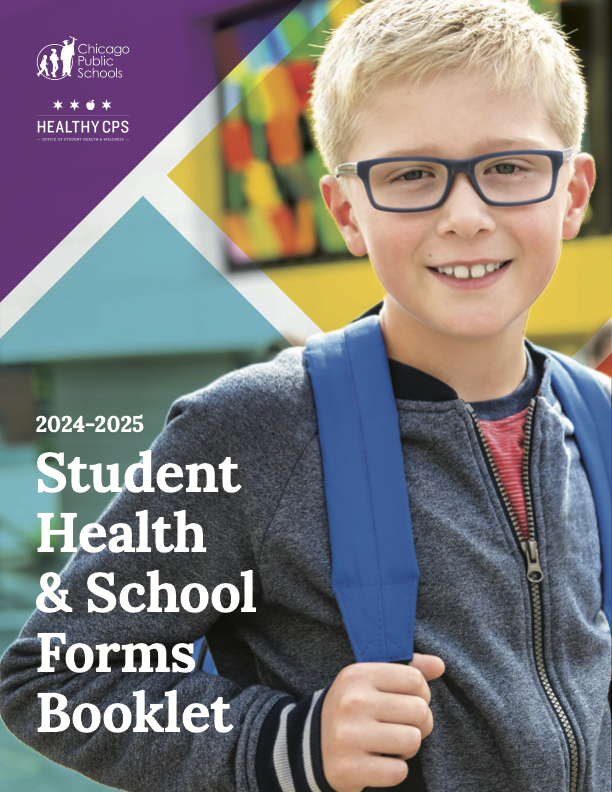
The health and safety of your children is always our top priority, especially during a public health emergency. Every child has a fundamental right to high-quality healthcare.
We want our children to have access to healthcare providers who specialize in preventative care and can address chronic conditions and health issues that are unique to children. It is imperative for parents and caregivers to submit health forms for students as soon as possible so they receive much needed health services.
All fillable forms must have an original parent or guardian signature; an electronic signature is not acceptable. By signing these documents, you certify that you are authorized to complete the documents, and the information provided is true and accurate.
Please visit the Office for Students with Disabilities website to learn about 504 and IEP related supports.

Student Health & School Forms Booklet
Read through the Student Health & School Forms Booklet carefully for information about CPS health requirements and services for SY24-25. All parents and guardians must submit the following forms to their school clerk as soon as possible:
Download the forms that are required based on your health condition, medications, or the health requirements for enrolling at your school. Bring these forms to your health care provider and return them to your school. CPS staff will review the forms and may contact the medical provider to clarify services required during school hours.
While these forms often say “physician,” they may also be completed by other medical providers (MD, DO, APRN or PA).
Download general forms to support a student’s health needs.
The following forms allow students to receive their medication under adult supervision at school. With the appropriate forms, students are permitted to carry and self-administer asthma, diabetes, seizure, or allergy medication.
In Illinois, certain students must receive a physical exam and immunizations. Find details about these requirements in the below forms.
Documenting your student’s allergies at school ensures proper support is provided for your student. A health care provider should complete these forms and any needed Medication Administration forms.
Documenting your student’s asthma at school ensures proper support is provided for your student. A healthcare provider should complete these forms and any needed Medication Administration forms.
Documenting your student’s cardiac condition at school ensures they are given the proper support. A healthcare provider should complete this form and any needed Medication Administration forms.
Students in Kindergarten, 2nd, 6th, and 9th grades must show proof of a dental examination.
Documenting your student’s diabetes at school ensures they are given the proper support. A healthcare provider should complete this form and any needed Medication Administration forms.
All students receiving physical or occupational therapy services are requested to provide a completed form signed by their medical provider each school year.
School nurses can use the following form to monitor student pregnancy
Documenting your student’s seizure at school ensures they are given the proper support. A healthcare provider should complete these forms and any needed Medication Administration forms
A healthcare provider should complete this form for students participating in school sports.
Download vision examination forms below.
The CPS Children and Family Benefits Unit (CFBU) connects CPS families to free or low-cost health insurance (Medicaid) and to food through the Supplemental Nutrition Assistance Program (SNAP). In addition to providing application and redetermination assistance, CFBU also provides parent-focused education to help families maintain and understand how to use their public benefits.
For more information, contact your Network's Children and Family Benefits Coordinator or call the Healthy CPS Hotline at 773-553-KIDS (5437).
Use the Find a Health Center map to find a Federally Qualified Health Center near you. Health Centers can provide you and your family with comprehensive, culturally competent, high-quality primary health care services as well as supportive services such as health education, translation, and transportation that promote access to health care. Federally Qualified Health Centers provide services regardless of a patient’s ability to pay and charge for services on a sliding fee scale.